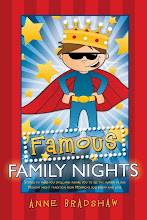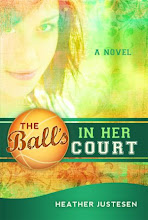Makeovers are awesome, especially on people, cars, rooms (before decorating and after). Manuscripts are no exception. Some people may refer to this as editing (which can sound a bit painful and boring) but I like to call it a manuscript makeover. To make my point, I would like to share with you some before and after shots of something I wrote a long time ago. It's an excerpt from my very first--and never published--novel.
Before:
That night, Mathew came up behind Liza in the garden, and took a seat next to her. They began to read together, but Liza was extra quiet as they read.
“What is wrong, Liza, you seem so quiet tonight?” Mathew asked.
“Nothing, I am just thinking about things.” Liza answered.
Mathew smiled and said, “Tell me what you are thinking Liza, we are friends, remember?”
“I am afraid you will not like what I am thinking about.” Liza said coolly.
Mathew looked at her in surprise. He had never seen Liza so distant and cool before. Something was definitely bothering her. He thought for a moment then asked, “Liza, we are friends. You give me advice, and I can give you advice. Tell me what is bothering you and perhaps I can help.”
Liza could feel her emotions welling up inside her. Mathew was making a horrible mistake, and she couldn't let him do it. She was afraid he would never forgive her for the things she might say. After Mathew asked her again what was wrong, Liza let all her feelings and emotions come out. “Mathew, you are making a big mistake. Don’t marry Miss Rachel. She doesn’t love you! But I do.”
In the time since I wrote this manuscript, I have read and studied and learned a lot about writing and editing. (One great source is "Self-Editing for Fiction Writers" by Rennie Browne and Dave King.) The things I have learned have helped me become a better writer and manuscript makeover-er, knowing how to utilize characterization, show vs. tell, strong dialogue, beats, tags, plot development, and everything else that goes into making a good book.
Now here's a view of this same section of manuscript with my suggestions on how to make it better and more engaging:
That night, Mathew came up behind Liza in the garden,(no comma) and took a seat next to her. They began to read together, but Liza was extra quiet as they read. (Okay, how are they reading outside in a garden at night? I don’t think the moon was that bright. Maybe change to something else. Also, what’s the setting like? More detail.)
“What is wrong, Liza, you seem so quiet tonight?” Mathew asked. (No need for these two characters to call each other by name all the time.)
“Nothing, I am just thinking about things.” Liza answered. (Could use a beat instead of tag.)
Mathew smiled and said, “Tell me what you are thinking Liza, we are friends, remember?” (More natural dialogue.)
“I am afraid you will not like what I am thinking about.” Liza said coolly. (Okay,it's becoming apparent that all the dialogue going on needs to be more natural, and here’s a good place to really bring to life.)
Mathew looked at her in surprise. He had never seen Liza so distant and cool before. Something was definitely bothering her. (Add some show vs. tell.) He thought for a moment then asked, “Liza, we are friends. You give me advice, and I can give you advice. Tell me what is bothering you and perhaps I can help.” (Clean up dialogue.)
Liza could feel her emotions welling up inside her. Mathew was making a horrible mistake, and she couldn’t let him do it. She was afraid he would never forgive her for the things she might say. After Mathew asked her again what was wrong, Liza let all her feelings and emotions come out. “Mathew, you are making a big mistake. Don’t marry Miss Rachel. She doesn’t love you! But I do.” (Lots of narration here, could be shown better with action or dialogue.)
(Overall, punctuation could be cleaned up, I could use more show vs. tell, more emotion, more beats instead of tags, better dialogue, and way less usage of the name Liza.)
Now, we can take these suggestions, plug them into the manuscript, and see where that takes us. (Keep in mind this was a quick revision. It still isn't there yet, but good enough to illustrate.)
After:
The stone bench in the garden seemed extra hard and cool tonight. Had it always felt that way, or were Liza's thoughts influencing her surroundings as well as her emotions?
“Can I have a seat?” It was Mathew, standing behind her, so close she could almost feel him.
She slid over, pulling her dress alongside so it wouldn’t snag on something, but said nothing. Her dampened neckline was evidence enough of the warm night, so making an effort to count the chirps of the crickets hidden in the surrounding hedges wasn’t necessary. Still she counted, though. Anything to keep her mind off her thoughts.
Mathew pulled a leaf off a nearby hedge and twirled it between his fingers. “You uh, seem a little quiet tonight. Is something wrong?”
“I’m just thinking.”
“What about? You can tell me.”
She pushed the breath she had been holding through her teeth. “I don’t think you would like it.”
Mathew dropped the leaf to the ground and looked at her with widened eyes. “From the look on your face, I would almost mistake you for a hardened criminal.”
The corners of her mouth twitched somewhat like a grin, though she still felt more like scowling.
“Come on,” he said. “You can tell me. Maybe I can help you.”
Emotions welled and swirled inside her, surprising her with their intensity. How could this man make such an obvious, horrible mistake? And he couldn’t even see it! “Don’t marry Miss Rachel, she doesn’t love you!” Liza shifted back, taking in the shocked expression of his face that matched the feeling inside herself, then, letting her voice and emotions soften, said, “But I do.”
Incorporating these different techniques and suggestions into the manuscript, so that it can be it's best, will hopefully not only engage your readers and keep them turning the pages, but also catch the eye of a potential publisher. :)



















